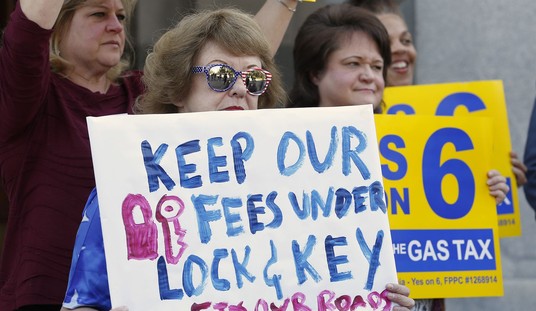Timothy P. Carney of the American Enterprise Institute is interviewed by Libertarianism.org on “Big Business Loves Big Government: Cronyism in American Politics:”
So the most famous sort of muckraker progressive story is Upton Sinclair, going into the meat packing plants and then everybody reads a book and sees how gross his meat packing plants are.
It’s an interesting story as a journalist because Sinclair was trying to write a socialist thing about the plight of the worker and people maybe started thinking, “Oh, the worker has it rough,” and then they say, “They put what in my meat?” and they lost all concern …
[Crosstalk]
Timothy Carney: Yeah, and the – he said, “I aimed for the country’s heart and I accidentally hit them in the gut.” That’s what Sinclair said and so there are letters that Teddy Roosevelt wrote that Gabriel Kolko who himself calls himself a socialist, he dug up these letters and he sees Roosevelt saying, “I find Sinclair like a completely despicable man, but he’s very useful here because it allows me to push for increased mandatory federal regulation of meat packing.”
You have the head of the big meat packer show up in congressional committees and say, “We are now and have always been in favor of federal regulation of meat packing.” Sinclair said, “No, this isn’t what I was aiming for. This is going to just give a government stamp of approval on the big guys. It’s going to create barriers to entry that keeps out the little guys.”
You see it again and again throughout where a lot of the attempts at monopoly and say oil and steel that the market undercut those attempts in the ways that you know they very often do. Everybody raises their prices in a cartel and then one guy is just way too tempted by the idea of stealing all the sales by undercutting the cartel. They started to go get together and say, “We’re not going to have a successful cartel unless we bring the government into it.”
So again, I track it back to Alexander Hamilton and George Washington but you can also – you can see it throughout all of history.
Aaron Ross Powell: Given that this has been going on for so long and that many cases sounds like it was rather obvious, what was going on, I mean was – there was no real attempt to hide the influence of big business on these regulations. Why does this narrative of the antagonism persist?
Timothy Carney: Why does the big myth persist? This is something I’ve tried to look into. For one, there are people who find it useful. If you’re a big business, you find it very useful to sort of have a docile kind of republican party that’s willing to do what you say, because they believe it’s in service of a higher cause.
I actually think that would be a more interesting story but it’s a harder story to tell and a lot of the reporters don’t even grasp it. When they do grasp it, it’s this amazing exception. The New York Times just recently had a piece about catfishing companies and said that these companies would sell these catfish. They were having trouble and so they did the unthinkable. They asked for more federal regulation.
Of course that’s almost the same phrase the New York Times used when they said Philip Morris did the unthinkable and they asked for more federal regulation of cigarettes and then you’ve got the – all these other companies that go ahead and they did the unthinkable and they asked for more government involvement.
And then there is Wall Street embracing Barack Obama in 2008, (aka “President Goldman Sachs”) and embracing Hillary Clinton $250,000 at a time. But the media continue to insist that Big Business is monolithically conservative and Republican — it’s kabuki all the way down, and it’s been that way for years.










Join the conversation as a VIP Member